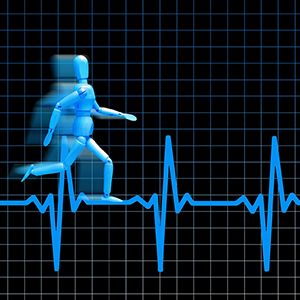Heart rate recovery in adult individuals with asthma

All claims expressed in this article are solely those of the authors and do not necessarily represent those of their affiliated organizations, or those of the publisher, the editors and the reviewers. Any product that may be evaluated in this article or claim that may be made by its manufacturer is not guaranteed or endorsed by the publisher.
Authors
Slow heart rate recovery (HRR) after exercise is a predictor of overall mortality in individuals with and without cardiovascular or respiratory disorders. No data on adults with asthma are available. The purpose of the study is to evaluate the prevalence of slow HRR in these individuals as compared with those with chronic obstructive pulmonary disease (COPD). We performed a retrospective analysis of baseline characteristics and physiological response to the six-minute walking distance test of stable individuals with asthma or COPD. Slow HRR was defined as HRpeak - HR at 1 minute after end exercise <12 bpm. Individuals with asthma walked significantly longer (median (IQR): 455 (385-512) vs 427 (345-485) meters; p=0.005) with a lower prevalence of slow HRR (30.3% vs 49.0%, respectively: p<0.001) than those with COPD. Individuals with asthma and slow HRR were older and walked less than those with normal HRR, without any difference in airway obstruction or in disease severity. Multivariate analysis showed that only the difference HRpeak - baseline HR (∆HR), was a predictor of slow HRR in both groups. More than 30% of adult individuals with asthma may show slow HRR. Only exercise ∆HR but no baseline characteristic seems to predict the occurrence of slow HRR.
How to Cite

This work is licensed under a Creative Commons Attribution-NonCommercial 4.0 International License.






